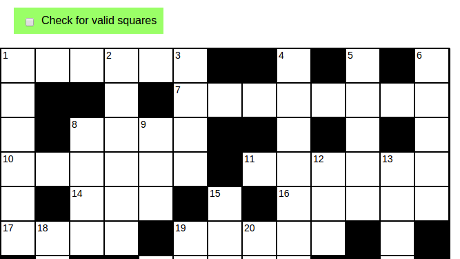The original, unedited post is below but in response to comments, I checked the XQuery, XPath, XSLT and XQuery Serialization 3.1 files in Chrome (CNTR-U) before saving them.
All the empty elements were properly closed.
I then saved the files and re-opened in Emacs, to discover that Chrome had stripped the “/” from the empty elements, which then caused BaseX to complain. It was an accurate complaint but the files I was tossing against BaseX were not the files as published by the W3C.
So now I need to file a bug report on Chrome, Version 47.0.2526.80 (64-bit) on Ubuntu, for mangling closed empty elements.
You could tell in XQuery, XPath, XSLT and XQuery Serialization 3.1, New Candidate Recommendations! that I was really excited to see the new drafts hit the street.
Me and my big mouth.
I grabbed copies of all three and tossed the XQuery draft against an xquery to create a list of all the paths in it. Simple enough.
The result weren’t.
Here is the first error message:
[FODC0002] “file:/home/patrick/working/w3c/XQuery3.1.html” (Line 68): The element type “link” must be terminated by the matching end-tag “</link>”.
Ouch!
I corrected that and running the query a second time I got:
[FODC0002] “file:/home/patrick/working/w3c/XQuery3.1.html” (Line 68): The element type “meta” must be terminated by the matching end-tag “</meta>”.
The <meta> elements appear on lines three and four.
On the third try:
[FODC0002] “file:/home/patrick/working/w3c/XQuery3.1.html” (Line 69): The element type “img” must be terminated by the matching end-tag “</img>”.
There are 3 <img> elements that are not closed.
I’m getting fairly annoyed at this point.
Fourth try:
[FODC0002] “file:/home/patrick/working/w3c/XQuery3.1.html” (Line 78): The element type “br” must be terminated by the matching end-tag “</br>”.
Of course at this point I revert to grep and discover there are 353
elements that are not closed.
Sigh, nothing to do but correct and soldier on.
Fifth attempt.
[FODC0002] “file:/home/patrick/working/w3c/XQuery3.1.html” (Line 17618): The element type “hr” must be terminated by the matching end-tag “</hr>”.
There are 2 <hr> elements that are not closed.
A total of 361 edits in order to use XML based tools with the most recent XQuery 3.1 Candidate draft.
The most recent XPath 3.1 has 238 empty elements that aren’t closed (same elements as XQuery 3.1).
The XSLT and XQuery Serialization 3.1 draft has 149 empty elements that aren’t closed, same as the other but with the addition of four <col> elements that weren’t closed.
Grand total: 747 edits in order to use XML tools.
Not an editorial but a production problem. A rather severe one it seems to me.
Anyone who wants to use XML tools on these drafts will have to perform the same edits.

 earlier this week, new Candidate Recommendations for:
earlier this week, new Candidate Recommendations for: